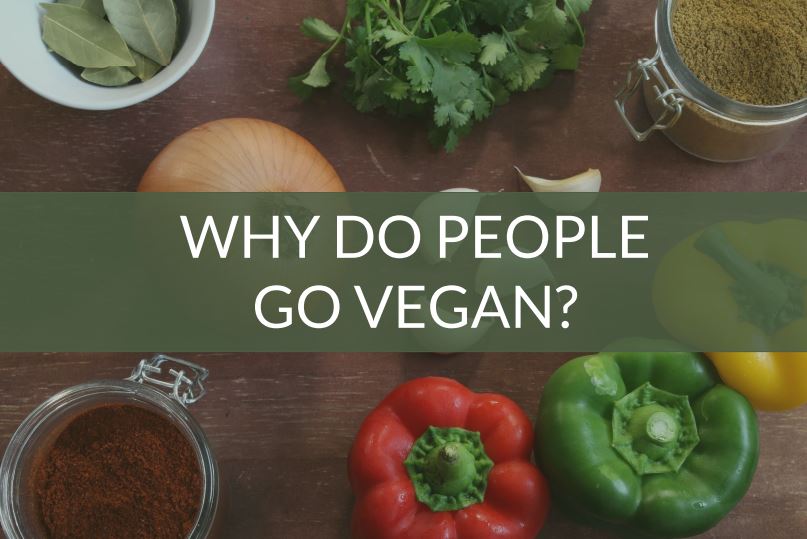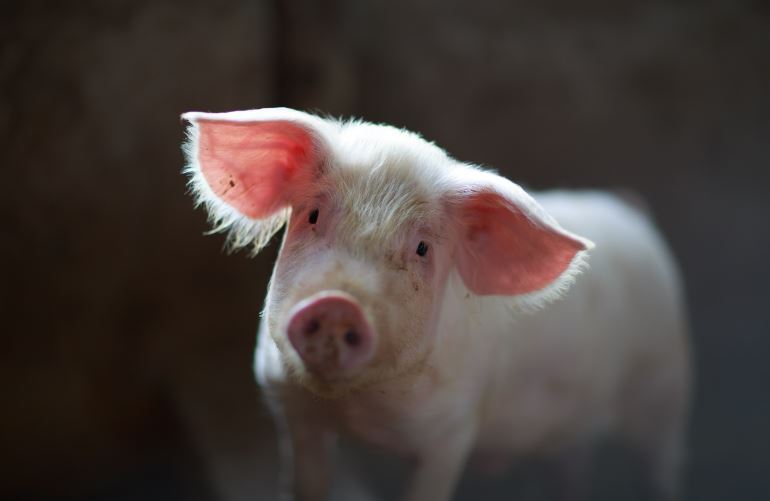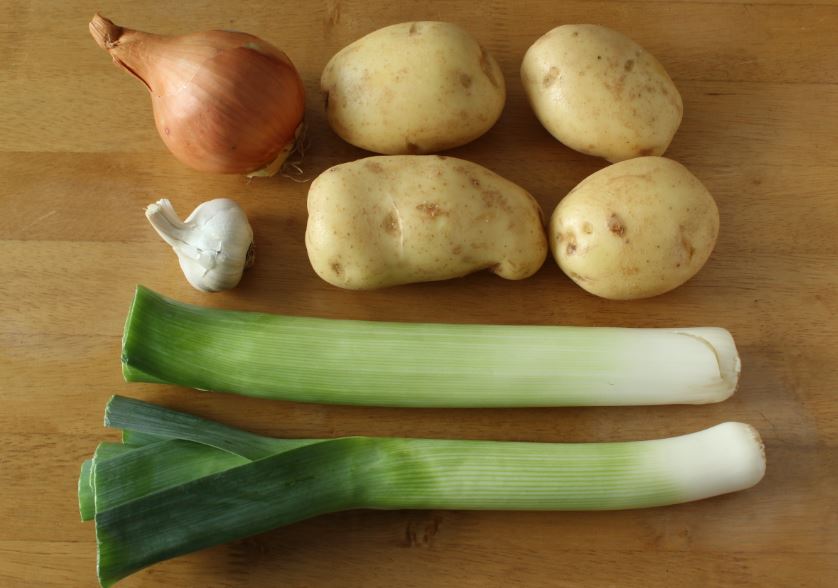There are numerous reasons why people go vegan, however the vast majority of us enter the vegan world through one of three main gates:
The great thing about this trio of reasons is that, regardless of which one got you interested in the first place, you can’t help but learn about the other elements as your journey progresses.
I create new content every single week. Subscribe to keep in touch and get a free download of The Vegan Kitchen – My Top 10 Tips.

Going vegan for the animals
At its core, veganism seeks to minimise the harm and suffering caused to other animals.
We humans have built numerous systems around the exploitation and commodification of innocent living beings. Since this has taken place over time, and we often don't see the damage caused by these systems, it's easy to turn a blind eye.
Most vegans weren’t always vegan. They are simply people who want to reduce animal suffering and have taken steps to align their actions with their beliefs.

Photo: (Julian Dutton)
Dairy
Like humans, dairy cows are mammals that will only produce milk once they have given birth. The repeated process of artificial, forced impregnation results in surplus calves that are separated from their mothers almost immediately after being born.
Male calves in particular tend to be seen as unwanted by-products of the dairy industry, with an estimated 60,000 shot within hours of birth each year in the UK alone. (Source)
Eggs
Since they are useless to the egg industry, around 40 million male chicks are killed in the UK each year within days of being born. This is usually done by gassing, but methods also include suffocation, electrocution, or being thrown alive into a grinder/macerator. (Source)
Chickens
A chicken’s normal lifespan is 10–15 years, yet of the 1 billion we produce each year in the UK, most are slaughtered at just 6 weeks old. Chickens bred for meat are arguably the most genetically manipulated of all animals, forced to grow 65 times faster than their bodies normally would. (Source)
Pigs
The ‘farrowing crate’ is used for 60% of all British sows during pregnancy. This small cage has a metal frame just centimetres bigger than the sow’s body, meaning she is unable to turn around and can scarcely take a step forward or backward. Sows are often kept in farrowing crates for weeks on end. (Source)
Sheep/lambs
In the UK, male lambs are often castrated through ‘elastration’ – a procedure whereby a thick rubber ring obstructs the blood supply and causes atrophy. This makes the lambs more docile and prevents them from engaging in undesired breeding or fighting, which may reduce the quality of the carcass. (Source)
Fish
People tend to think that fish don’t feel pain in the same way that land animals do, however biologists and vets increasingly accept fish pain as a reality. With that in mind, it's worth noting that the fish we catch are usually crushed inside fishing nets, disembowelled while still conscious, or left to suffocate.
To learn more, I'd recommend checking out the resources over at The Vegan Society.
Going vegan for the environment

(Photo: kazuend)
Of all the issues facing humanity at the turn of the decade, climate change will arguably be the one that defines us. Studies show that going vegan is the single biggest thing you can do to reduce your impact on the environment.
I originally went vegan because I wanted to do something good for the planet. While I’ve since learned about the importance of animal welfare and more about personal health, I believe that the environment will be the main reason why other people decide to introduce changes to their lifestyle.
Facts
- A 2018 University of Oxford study found that avoiding meat and dairy is the single biggest way to reduce your impact on Earth. (Source)
- If everyone on the planet went vegan, it could reduce greenhouse gas emissions by two thirds by 2050. (Source)
- Animal farming provides just 18% of our calories but takes up 83% of our farmland. (Source)
- It takes 4 times as much water to produce 1 kg of beef vs 1 kg of pulses. (Source)
- Each day, a person who eats a plant-based diet saves 1,100 gallons of water, 45 lbs of grain, 30 sq ft of forested land, 20 lbs CO2 equivalent, and one animal’s life. (Source)
- A farm with 2,500 dairy cows produces the same amount of waste as a city of 411,000 people. (Source)
Going vegan for health reasons

Many people go vegan for the simple reason that it allows them to lead healthier and happier lives. Research has shown that a plant-based diet can help to prevent, treat, and even reverse some of the biggest killers we face, such as heart disease, type 2 diabetes, and high blood pressure.
A plant-based diet could certainly be unhealthy, e.g. if you consumed nothing but chips, frozen meals, straight vodka, and smoked 40 cigarettes a day. But when based around whole plant foods, it can promote weight loss, increase energy levels, improve sleep, reduce depression, extend lives, and lessen the huge burden on our health services.
Facts
- Eating more plant-based foods may reduce your risk of heart attack, heart failure, stroke, and heart disease. (Source)
- A plant-based diet has been linked to a 35% lower risk of prostate cancer. (Source)
- The rampant overuse of antibiotics in intensive animal farming risks making us more resistant to drugs. (Source)
- By eating plants instead of animals, we are ‘cutting out the middleman’ and getting straight to the nutrients we need. And yes, that includes protein. (Source)
- A plant-based diet can significantly improve athletic performance. It provides optimal fuel, increases blood flow, makes muscles more efficient, and speeds up recovery by lowering inflammation. (Source)
Veganism is not the answer to all the world’s problems
But it’s a great place to start.
It’s amazing to think that you can be doing good for the planet, minimising animal suffering, and improving your personal health all at the same time. Going vegan was one of the best things I ever did.
The cool thing about the three main reasons above is that, regardless of which one gets you interested in the first place, you can’t help but learn about the other elements as your journey progresses.
Social follow
🌱 Follow along @thepeskyvegan on Instagram, Pinterest, and Facebook.
Further reading
📩 Fancy keeping in touch? Subscribe to my weekly newsletter.
📖 Find out more about my story.
🍽️ Want to get straight to the food? Hop aboard the recipe train.
🌿 Got a question about veganism? You might find the answer in these vegan FAQs.


Cathy (aka - powered_up_by_plants on insta)
Thank you for this organized and well-written article. I love how you presented this information and I think it is a great way to welcome someone who wants to try to go vegan without scaring them or being overly aggressive. I will share this article with my husband who has reduced his meat consumption but still eats it sometimes.
The Pesky Vegan
Thanks very much for the feedback! Especially good to hear that it doesn't come across as too 'aggressive' or 'scary', as that definitely wouldn't be the way to communicate these issues to a newcomer.